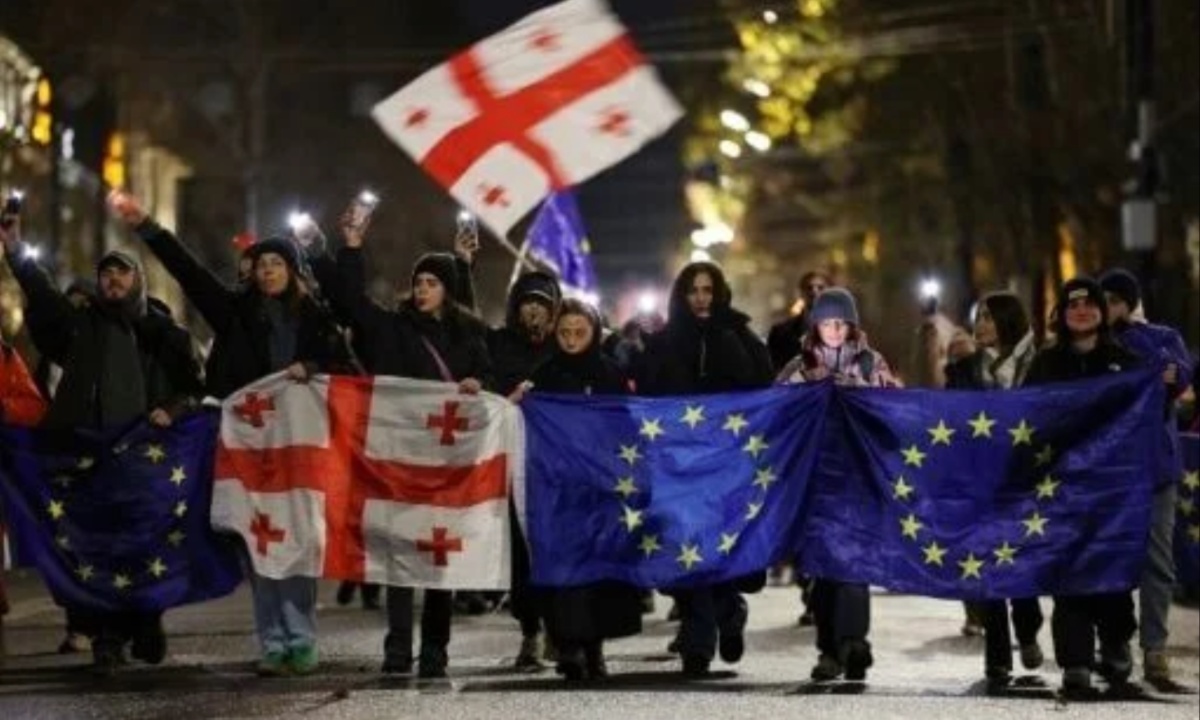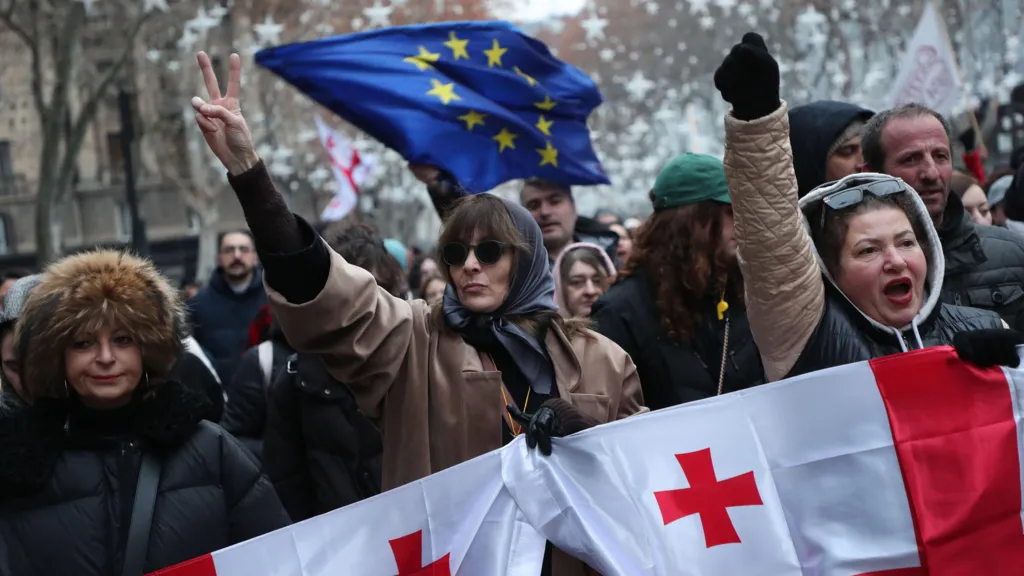In Tbilisi, the capital of Georgia, thousands of protesters have formed a human chain, signaling their opposition to the political developments surrounding the upcoming presidential inauguration. Mikheil Kavelashvili, a former Manchester City footballer and ally of the ruling Georgian Dream party, is set to be inaugurated as the new president on Sunday. However, the current president, Salome Zourabichvili, has refused to step down, deeming Kavelashvili’s election illegitimate. This refusal has resulted in escalating tensions and protests across the country.
The controversy stems from the parliamentary elections held in October, where Georgian Dream claimed victory. Despite winning, the elections were marred by allegations of fraud, which fueled protests from the opposition. Four major opposition parties have rejected Kavelashvili’s election and boycotted the new parliament. This standoff between the government and the opposition has created uncertainty about how the political crisis will unfold in the coming days.

Protests Erupt in Tbilisi as Political Crisis Escalates Ahead of Kavelashvili’s Inauguration
The protesters, many of whom held Georgian and EU flags, gathered in large numbers on Saturday, forming a human chain stretching for kilometers. A key sentiment expressed by one protester was the desire to prevent Georgia from falling under Russian influence, emphasizing the need to break free from what they described as the “claws of the Russian empire.” This reflects growing frustration with the Georgian Dream party, which has adopted policies seen by critics as increasingly authoritarian and aligned with Russia, particularly in its stance on media and LGBTQ+ rights.
In addition to internal issues, Georgian Dream has faced criticism for its foreign policy. The ruling party refused to join Western sanctions against Russia following its invasion of Ukraine and has been vocal in its opposition to the West, calling it a “global war party.” Despite these stances, most Georgians continue to support the country’s aspirations for EU membership, a path enshrined in the constitution. However, in November, the government announced it would delay the start of EU accession talks until 2028, sparking further protests that were met with violent police crackdowns.
The political rift deepens with the tension between Zourabichvili and Georgian Dream. Although Zourabichvili was initially backed by the party when she was elected president in 2018, she has since become a vocal critic. She has denounced the election victory as part of a “Russian special operation” and has expressed support for pro-EU protests. Despite the government’s warning that her refusal to step down could constitute a crime, Zourabichvili has vowed to stay in office, setting the stage for a potentially dramatic clash between the president and the ruling party.











































